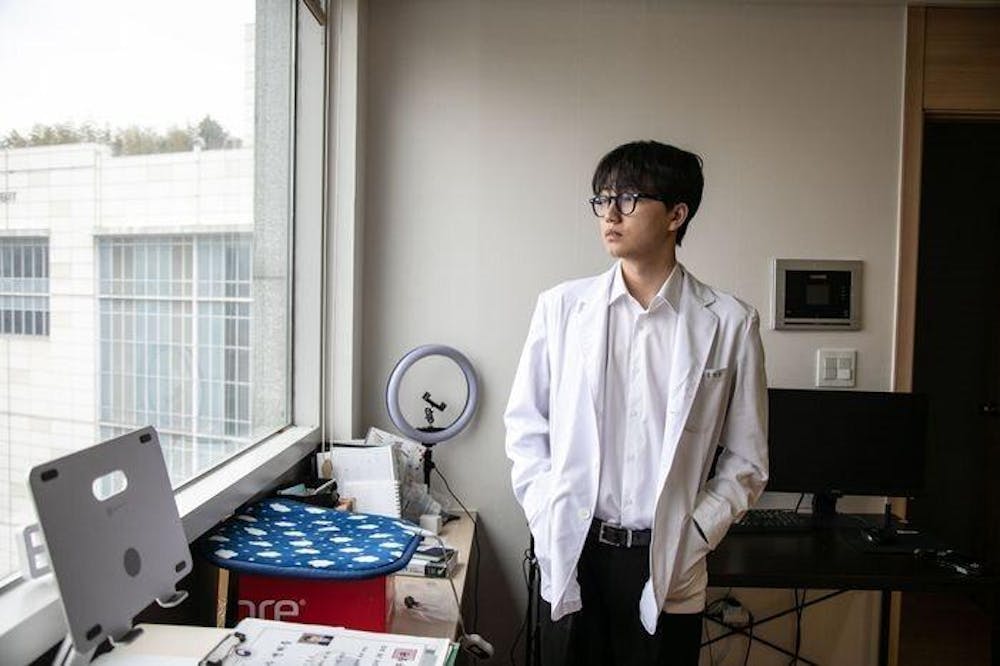Global Need-to-Know highlights relevant pieces of international news. These stories aim to broaden the perspective of the Taylor community as they absorb information from a variety of sources and spaces.
South Korean doctors staging walkout call for systemic change.
South Korean medical interns and residents refuse to return to work, confronting the government’s plan to boost medical school enrollments.
On Feb. 20, approximately 9,076 of the country’s 13,000 medical interns submitted resignations and left their respective hospitals, the Health Ministry stated.
The government’s plan to increase medical school admittance by an additional 2,000 applicants furthers a long-term goal of implementing 10,000 new doctors by 2035. The plan seeks to address the needs of South Korea’s fast-aging population by altering the current doctor-to-population ratio.
The plan received support from the public — with 76% of Gallup Korea poll respondents expressing a desire to boost medical school admissions.
South Korean doctors, however, doubt universities’ capacity to provide new students with a quality education. Junior doctors have also expressed concerns about the current medical system, arguing that low wages and unsatisfactory working conditions should be the government’s primary concern.
The Korean Resident Association cited in a recent Reuters article, notes that interns and resident South Korean doctors average 100 hours a week and pull 36-hour shifts, compared to young U.S. physicians’ 60-hour weeks and less-than-24-hour shifts.
Though senior doctors and private practitioners remain in the hospitals, many have staged rallies in support of junior doctors — urging the government to stop its plan.
With two-thirds of the country’s young doctors out of commission, hospitals have begun turning away patients, canceling surgeries and delaying treatments. The South Korean government has threatened strikers with the suspension of medical licenses, heavy fines, arrest and prosecution. Officials from the Health Ministry began confirming absences of striking doctors on Monday, March 4, to begin license suspension proceedings.
South Korean law allows the government to mandate a return to work if it anticipates grave risks to public health. Strikers, who make up 40% of staff in large teaching hospitals, say the government’s response is unconstitutional, forcing them to work against their will.
The Korean Medical Association, which represents the country’s doctors, has yet to decide if it will join trainee doctors in their walkout efforts.
Internal fighting heightens humanitarian crisis in the DRC.
Conflict between the March 23 Movement (M23) and Congolese armed forces (FARDC) in the Democratic Republic of Congo’s North Kivu province has displaced an estimated 1.7 million people.
Internally displaced individuals are seeking shelter, food and medical help in the provincial capital of Goma — approximately 25 kilometers removed from the seat of the conflict.
“The violence continues to force families from their homes and as the conflicts continue, it is unclear when they will be able to return,” a report from the United Nations Office for the Coordination of Human Affairs (OCHA) stated. “The loss of income, harvest and livelihoods will weigh heavy on their food security throughout 2024.”
The conflict between M23 and FARDC contributes to a pattern of conflict in Eastern Congo that has featured more than 100 armed groups. Much of the conflict hinges on mineral-rich land near the Rwandan border.
Tensions with Rwanda continue to grow, as the DRC accuses Rwanda of supporting M23 forces, a recent AP article stated.
“(Our strategy) is simple,” Patrick Muyaya, minister of communication and media spokesman for the DRC, said in an interview with Al Jazeera. “For us, the M23 doesn’t exist. M23 are the puppets of random governments — the president made that point clear in our last meeting.”
Muyaya emphasized the DRC’s suspicions of their eastern neighbor as the source of unrest — stating that future peacekeeping efforts depend on Rwanda’s ability to respect prior agreements with the DRC.
The DRC refuses to negotiate with M23 forces or recognize them as an independent party.
“M23 is a Congolese organization that signed an agreement with the Congolese government,” M23 political spokesman Lawrence Kanyuka said in response to Muyaya. “We are Congolese with a cause: we have been asking the DRC government to have dialogue — to discuss the root causes of conflict.”
President of the DRC Felix Tshisekedi is pursuing discussions with Rwandan President Paul Kagame, despite denials from both Rwanda and Uganda against accusations of support for armed groups fighting the Congolese government.
The South African Development Community (SADC), a regional economic community comprised of 16 member states, deployed troops to the eastern DRC in December 2023 in an attempt to restore peace.
“There’s been a lot of international pressure on all sides to de-escalate things and go back to mediation,” Al Jazeera correspondent Catherine Soi reported from Goma. “It will be very interesting to see how that plays out because past efforts by regional leaders have failed.”
Increased conflict in the DRC coincides with the United Nations’ plan to withdraw peacekeeping forces from the region by the end of the year.




